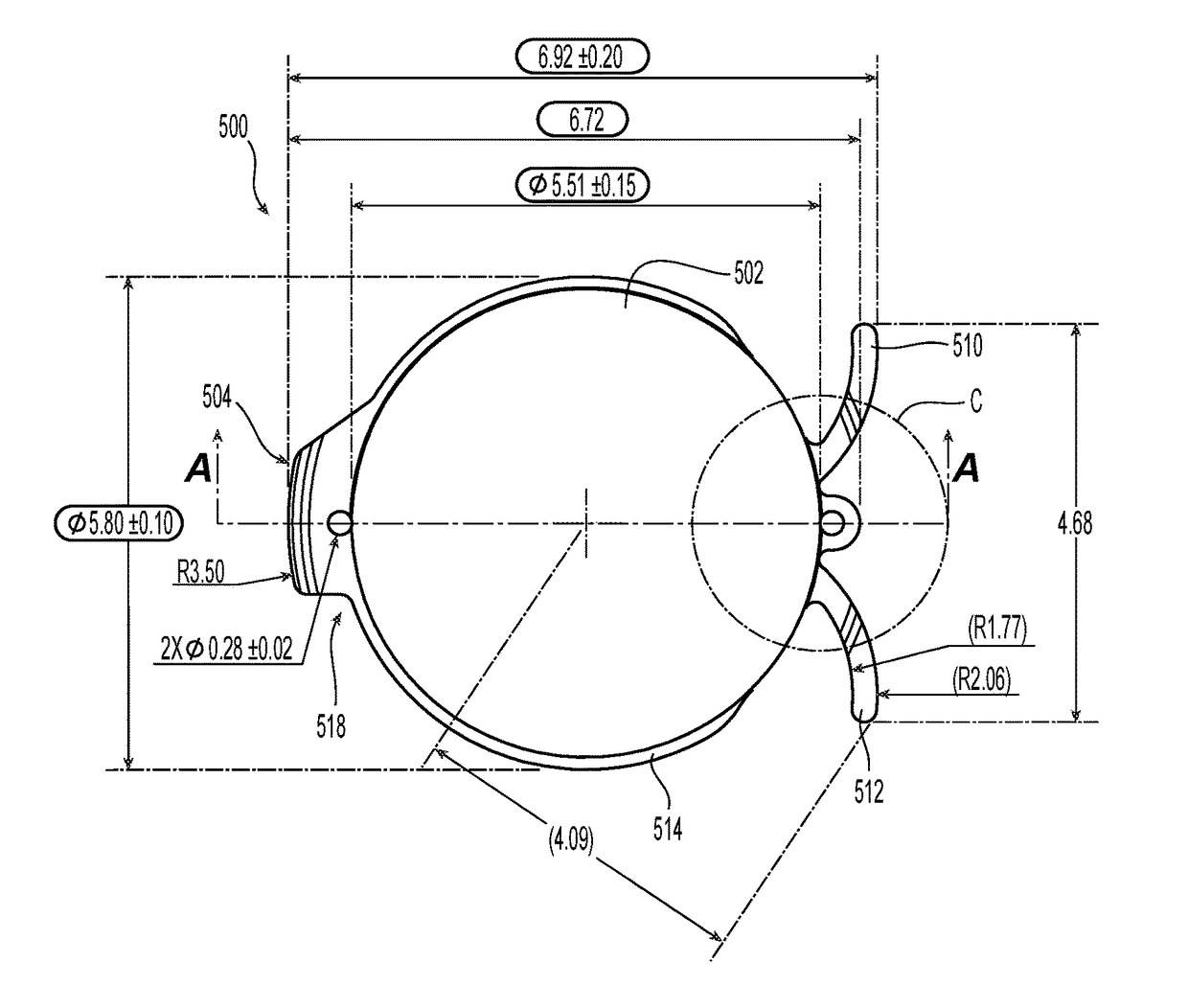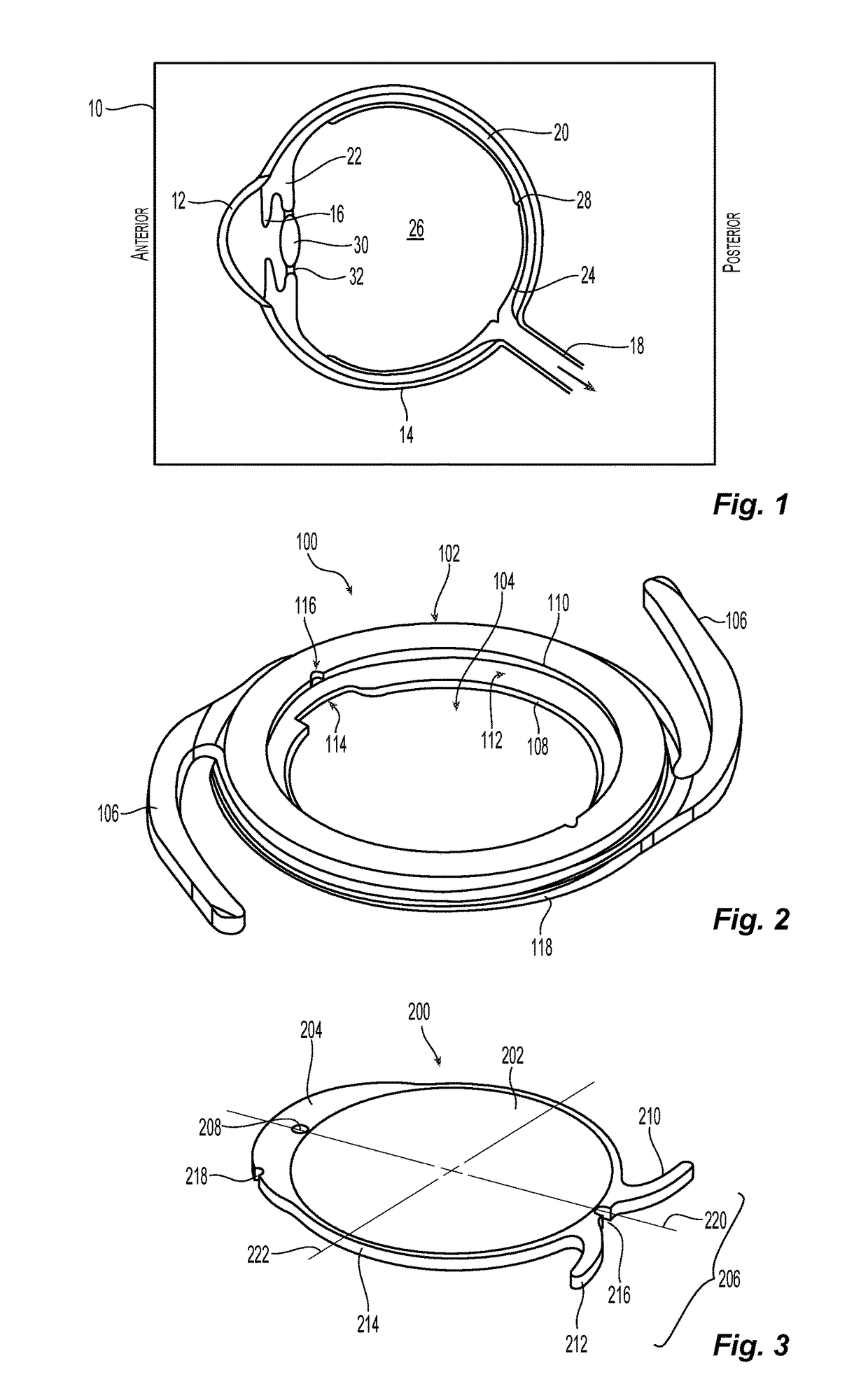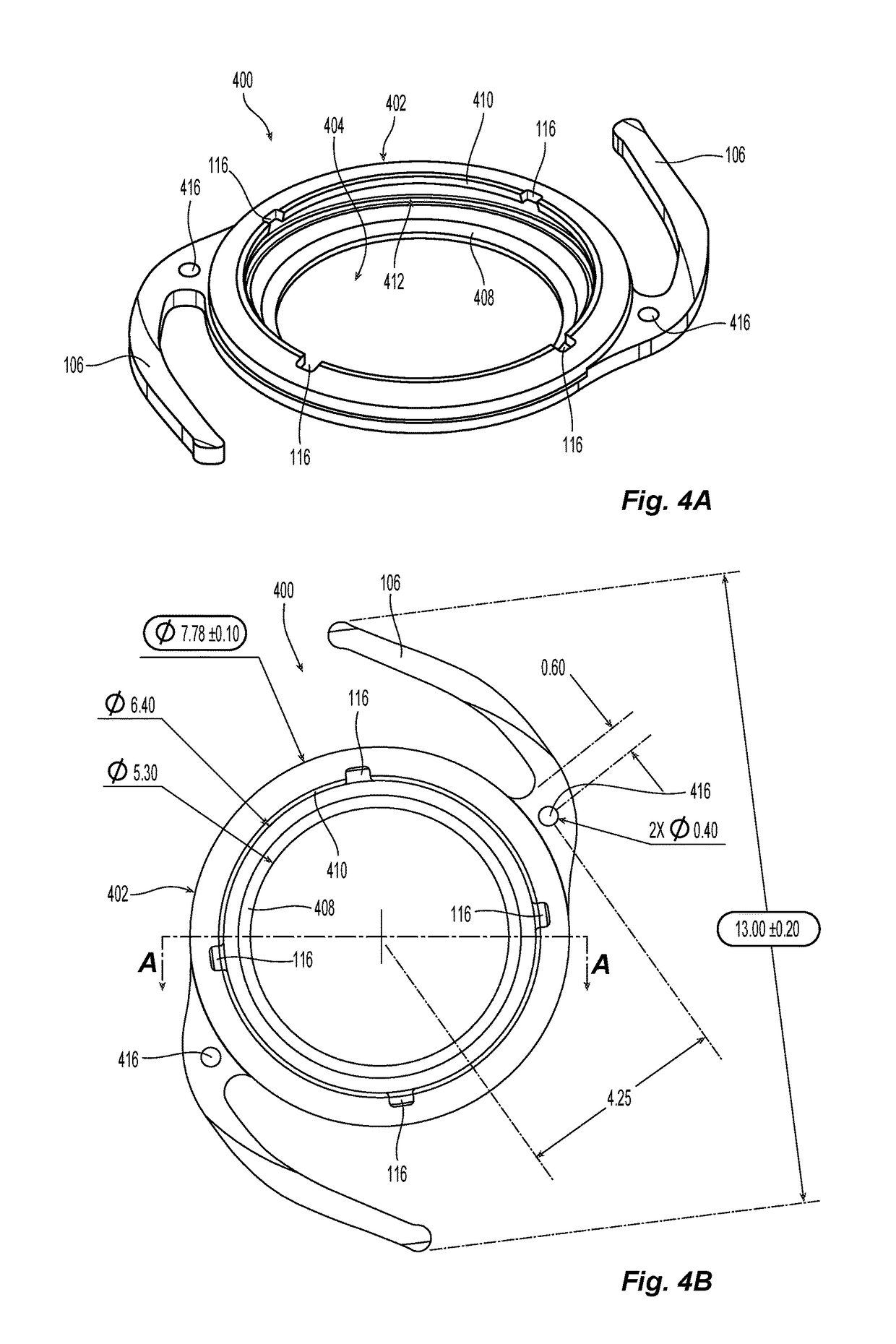Modular intraocular lens designs, tools and methods
a technology of intraocular lens and module, applied in the field of intraocular lens, can solve the problems of deteriorating vision, needing adjustment, and suboptimal optical results
- Summary
- Abstract
- Description
- Claims
- Application Information
AI Technical Summary
Benefits of technology
Problems solved by technology
Method used
Image
Examples
Embodiment Construction
[0028]With reference to FIG. 1, the human eye 10 is shown in cross section. The eye 10 has been described as an organ that reacts to light for several purposes. As a conscious sense organ, the eye allows vision. Rod and cone cells in the retina 24 allow conscious light perception and vision including color differentiation and the perception of depth. In addition, the human eye's non-image-forming photosensitive ganglion cells in the retina 24 receive light signals which affect adjustment of the size of the pupil, regulation and suppression of the hormone melatonin, and entrainment of the body clock.
[0029]The eye 10 is not properly a sphere; rather it is a fused two-piece unit. The smaller frontal unit, more curved, called the cornea 12 is linked to the larger unit called the sclera 14. The corneal segment 12 is typically about 8 mm (0.3 in) in radius. The sclera 14 constitutes the remaining five-sixths; its radius is typically about 12 mm. The cornea 12 and sclera 14 are connected b...
PUM
 Login to View More
Login to View More Abstract
Description
Claims
Application Information
 Login to View More
Login to View More - R&D
- Intellectual Property
- Life Sciences
- Materials
- Tech Scout
- Unparalleled Data Quality
- Higher Quality Content
- 60% Fewer Hallucinations
Browse by: Latest US Patents, China's latest patents, Technical Efficacy Thesaurus, Application Domain, Technology Topic, Popular Technical Reports.
© 2025 PatSnap. All rights reserved.Legal|Privacy policy|Modern Slavery Act Transparency Statement|Sitemap|About US| Contact US: help@patsnap.com



